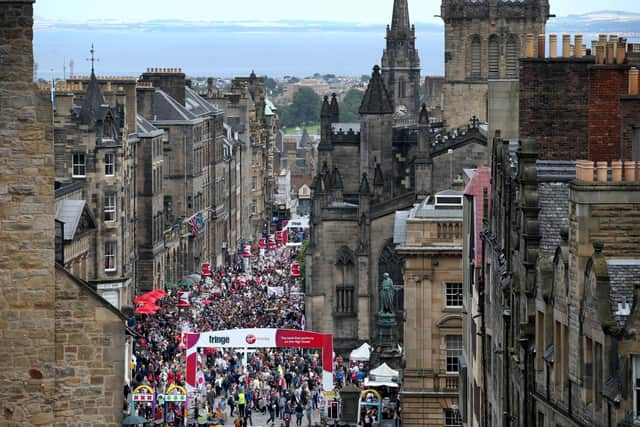Tourist tax Scotland: SNP using tax detail to finally re-set strained relationship with councils
SNP ministers have insisted councils will draw up their own plans to finally roll out a tourist tax for Scotland – and could use the legislation as an opportunity to reset a strained relationship with local government.
It was all meant to be different under Humza Yousaf’s leadership. The Scottish Government was under new management and by signing the Verity House Agreement, a new level of trust between the two tiers of government was promised.
Advertisement
Hide AdAdvertisement
Hide AdBut the First Minister’s pledge of a council tax freeze and the same budget anger that local government vented year after year at Mr Yousaf’s predecessor Nicola Sturgeon shows the relationship between local and central government remains fraught.


The Scottish Government agreed to introduce a tourist tax, or visitor levy, in 2019. The plans were put on hold due to the Covid pandemic and have been sluggishly revived.
But as SNP ministers push their plans forward, public finance minister Tom Arthur, who is leading on the policy, has rejected calls from Conservative and Labour MSPs to dictate rules from Holyrood instead opting to “empower” local councils.
Many of the concerns that were raised at stage two of the legislation’s journey through Holyrood were acknowledged as issues that need ironed out by Mr Arthur. But he was blunt that councils are “best-placed” to draw up schemes that work in their area, helped by guidance.
Smaller businesses could be hit by the potential VAT implications of a tourist tax. The need to set out exemptions, potentially including for those whose children are in hospital, and how the funds raised can be spent by councils have been raised as concerns for the business community.
Bur Mr Arthur was adamant that it will be “best for local authorities to decide” how their scheme will “reflect local circumstances”.
One key part of the tourist tax plans is how much people will have to pay. The initial proposals point to a set percentage of a room rate, determined by local councils.
Tory shadow secretary for social justice, housing and equalities, Miles Briggs, warned councils being able to set a different rate in different parts of the country could be “problematic”. But Mr Arthur stuck to his guns, stressing it would remain a matter for individual councils.
Advertisement
Hide AdAdvertisement
Hide AdOne new element of the legislation is the Scottish Government’s ambition to include a cruise ship levy into the plans. The minister insisted “my hope would be that we are in a position to amend this legislation to enable a cruise ship levy to be captured”.
Mr Arthur said “if we are unable to do that, we will identify an alternative vehicle”, which could involve separate legislation.
Scottish councils have been long-promised a new revenue stream through a tourist tax for some time. It is likely those local authorities who are keen to roll out a visit levy will be reassured they will retain control over how it might work in their area. But it will take more than this to reassure councils the Scottish Government is serious about treating local government finance with more empathy.
Comments
Want to join the conversation? Please or to comment on this article.